At Computex 2025, Synology kept it practical and powerful – with just a hint of AI
We take a deeper look at the latest in home and enterprise NAS
Sign up for breaking news, reviews, opinion, top tech deals, and more.
You are now subscribed
Your newsletter sign-up was successful
Synology took a pretty grounded approach at Computex this year, focusing on storage, backup, and surveillance solutions for both home users and enterprise customers. From simplified private cloud to all-flash performance monsters, it was all about control, privacy, and smart management, with the barest hint of AI.
Synology BeeStation Plus: cloud convenience without the cloud
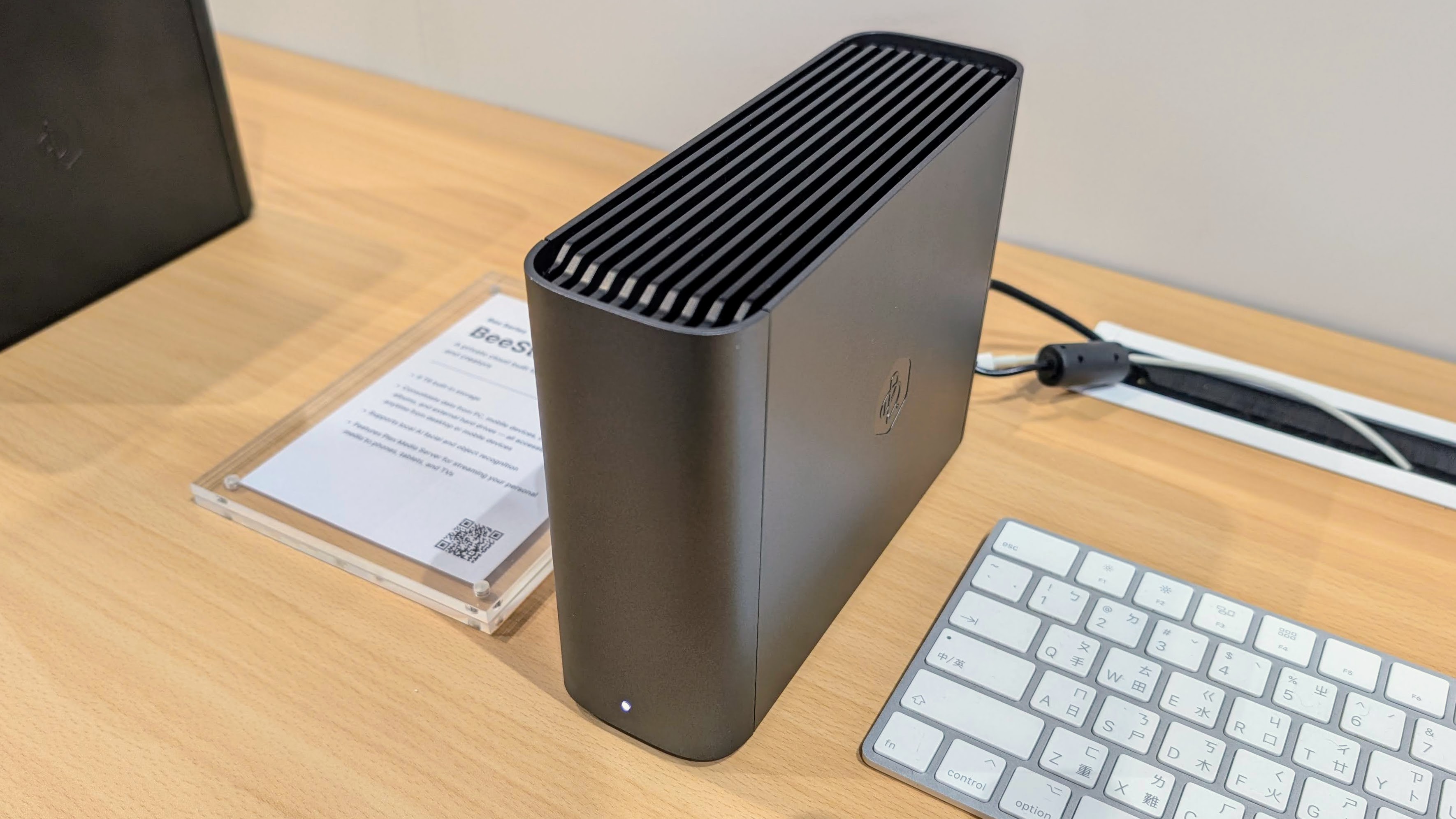
The new BeeStation Plus is Synology’s answer to the mess of scattered photo backups and never-ending cloud subscription fees. Built with families in mind, it handles automatic photo syncing from smartphones, imports from iCloud Photo Library, and multi-device backups. It also supports Plex for local media streaming duties. The BeeStation Plus takes a simplified approach, with no NAS experience required, and a clear focus on privacy and control. Think of it as a replacement (or augmentation) of your iCloud or Google Photos account, minus the ongoing fees.
We especially like that the BeeStation Plus is more than just a media machine. For example, you can pair it with Synology’s new CC400W AI camera, and the NAS becomes a surveillance hub – storing footage on-device with no third-party cloud involvement. The downside is that it doesn’t run Synology DSM, so doesn’t support third party cameras. If you want to record from your existing cameras or doorbell, you’ll need a fully-featured NAS like the DS225+.
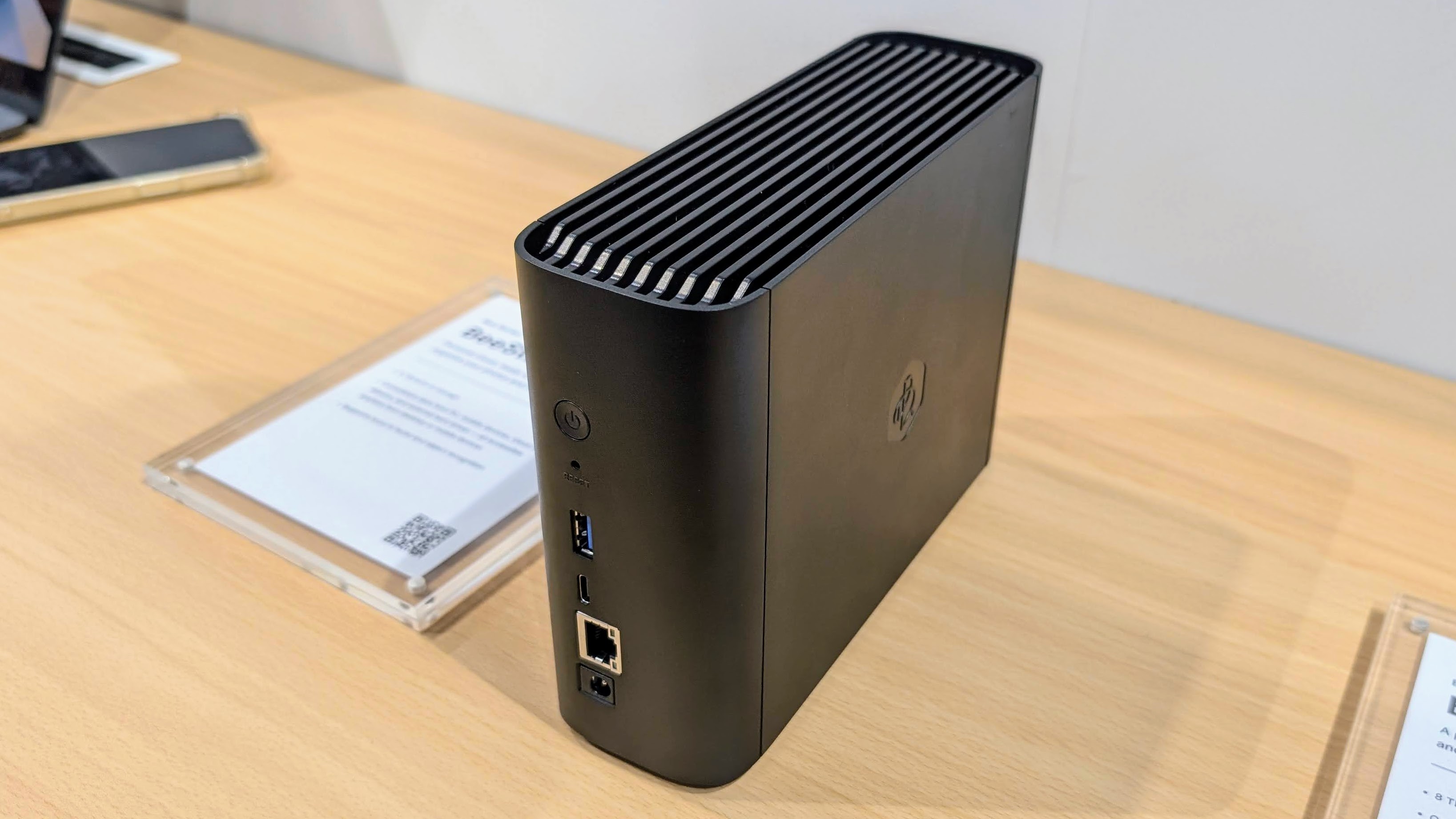
Under the hood, the BeeStation Plus runs a quad-core Intel Celeron J4125 with 4GB of DDR4 RAM and 8TB of preconfigured internal storage. It’s a modest CPU but well matched to its role, and you also get 1GbE networking, USB-C and USB-A 3.2 Gen 1 ports, plus passive cooling so it can run near silently. The NAS is also compact enough (148 x 62.6 x 196.3 mm) to tuck onto a shelf or desk without drawing attention.
Photo indexing and object detection are handled by a local AI engine, so you can search your library without uploading anything to the cloud. And for backup peace of mind, it supports snapshot-based versioning and comes with a three-month BeeProtect subscription for encrypted cloud backups. In other words, it’s pretty well suited to users who want the perks of a private cloud without the hassle of a full-blown NAS setup.
While the BeeStation Plus is not yet widely available, retailers like Mwave have it for around AU$775.
Synology BeeDrive: a portable SSD with NAS-like features
Synology was also showing off the BeeDrive – a cool little portable SSD with some impressive smarts inside. While originally launched back in 2023, it’s had a bunch of new features added since, and ties in well with the BeeStation. The drive isn’t your normal external storage, and has NAS-like features, including automated backups over wired or wireless connections, and you can drop files to it from your phone, or browse pics directly from it.
Sign up to the TechRadar Pro newsletter to get all the top news, opinion, features and guidance your business needs to succeed!
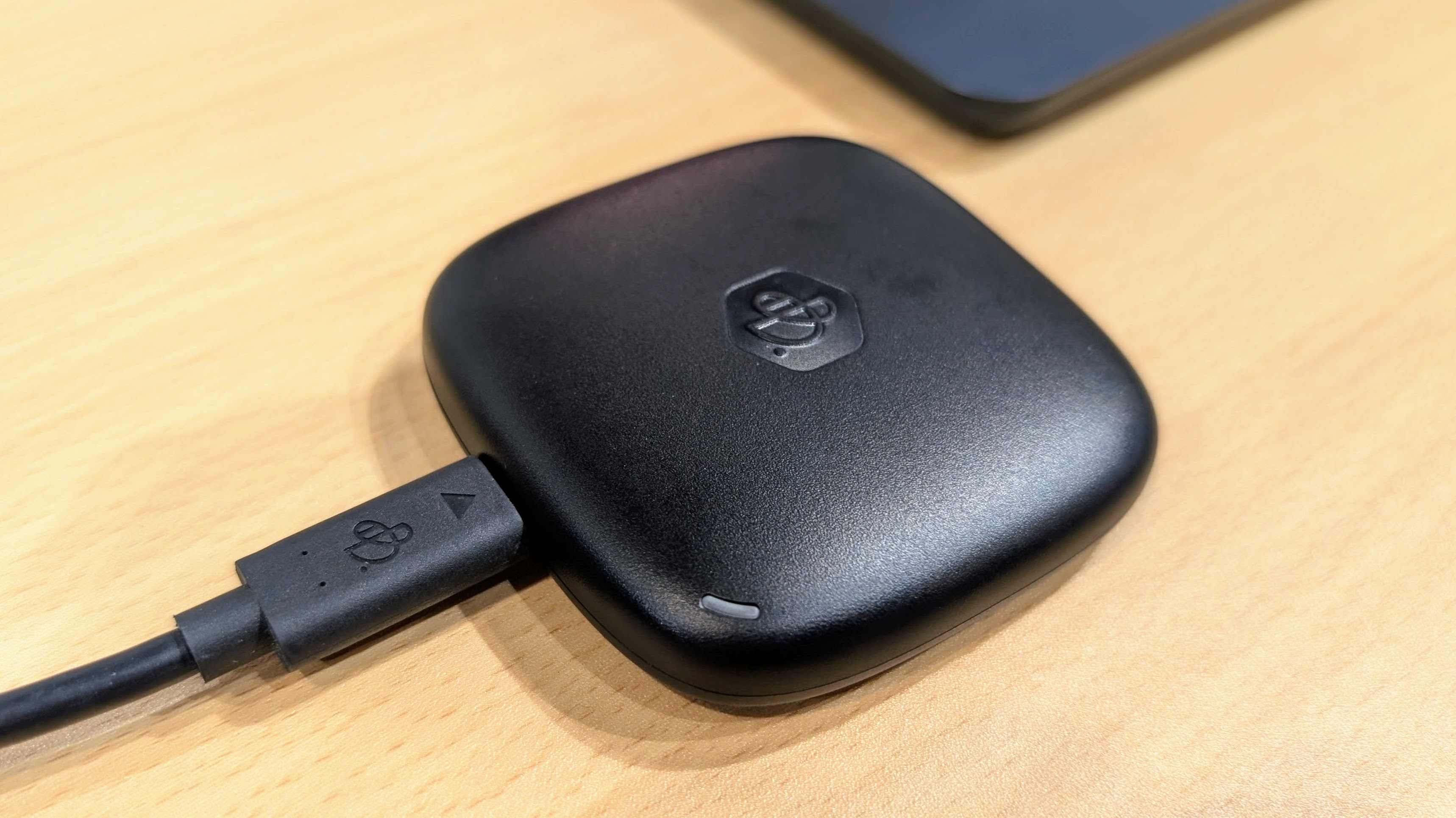
Synology Plus Series NAS: more power for small offices and home labs
The new DiskStation DS225+ was on display at Synology’s Computex booth, along with the rest of the Plus lineup built for Pro home users and small businesses that need a bit more horsepower. One interesting twist is Synology’s new drive compatibility policy. To get access to full system features, you now need to use Synology-branded or certified drives. The goal is to improve reliability, but we worry it may limit flexibility for users who want to save some money with specific third-party storage options.
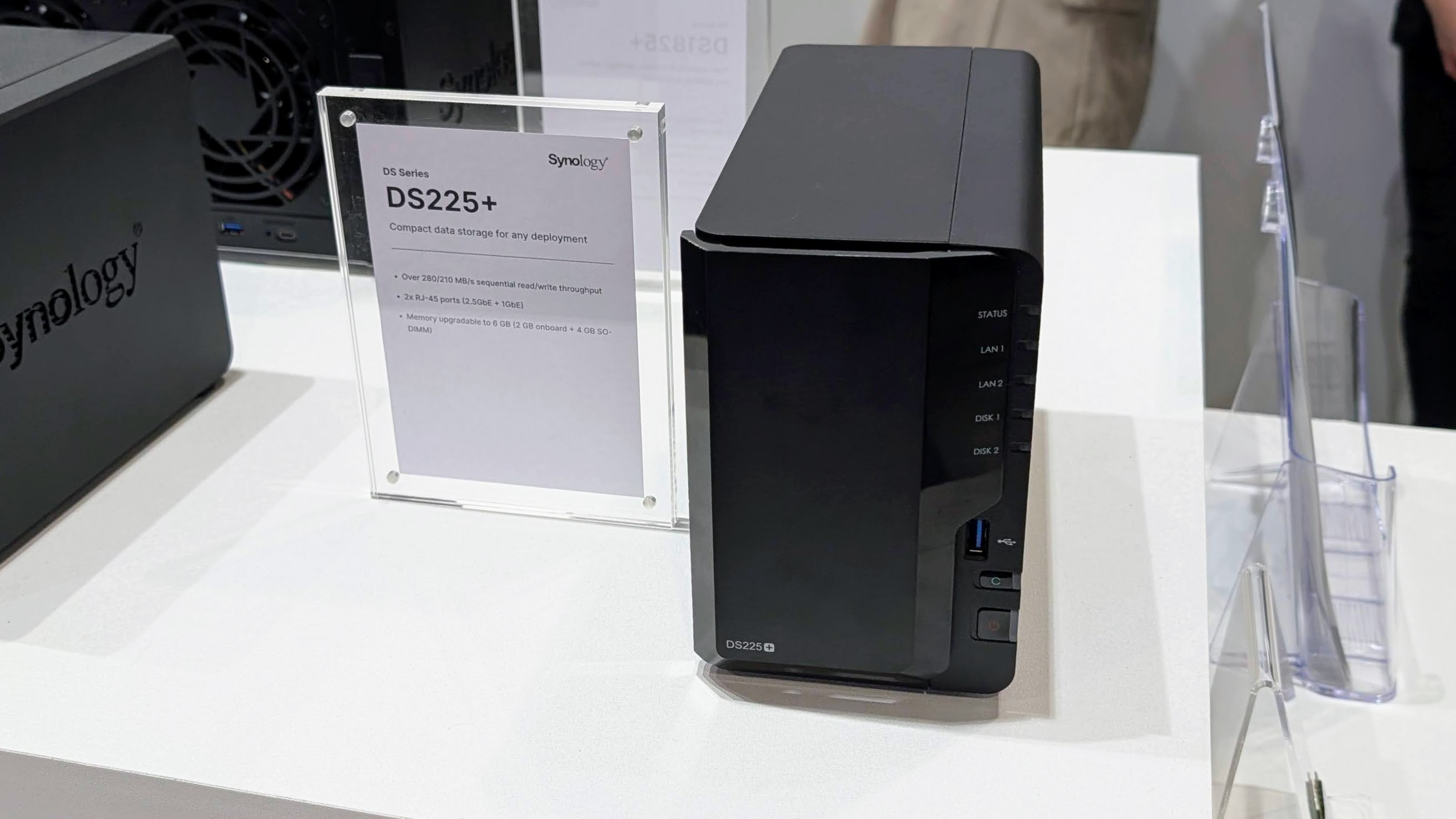
Synology DiskStation DS225+: compact power for the home office
While we haven’t tested the DS225+ just yet, based on the spec, the DS225+ is looks to be a very capable 2-bay NAS built with more demanding users and small teams in mind. Powered by the older but still decent Intel Celeron J4125 quad-core processor, it has plenty of performance for everyday tasks like file sharing, data backup, media streaming, and even some light virtualisation. It comes with 2GB of DDR4 memory out of the box, but you can drop in a 4GB SO-DIMM upgrade (for a total of 6GB RAM) to handle more demanding workloads.
One of the features we especially like is the dual LAN, with a 2.5GbE port for high-speed network transfers and a 1GbE port for added flexibility or link aggregation. The NAS also includes two USB 3.2 Gen 1 ports, which make for quicker external backups or even adding external drives for extra storage space.
The DS225+ uses Synology’s DiskStation Manager (DSM) so you get all the normal features, from scheduled backups to file sync across devices with Synology Drive, or running your own media server.
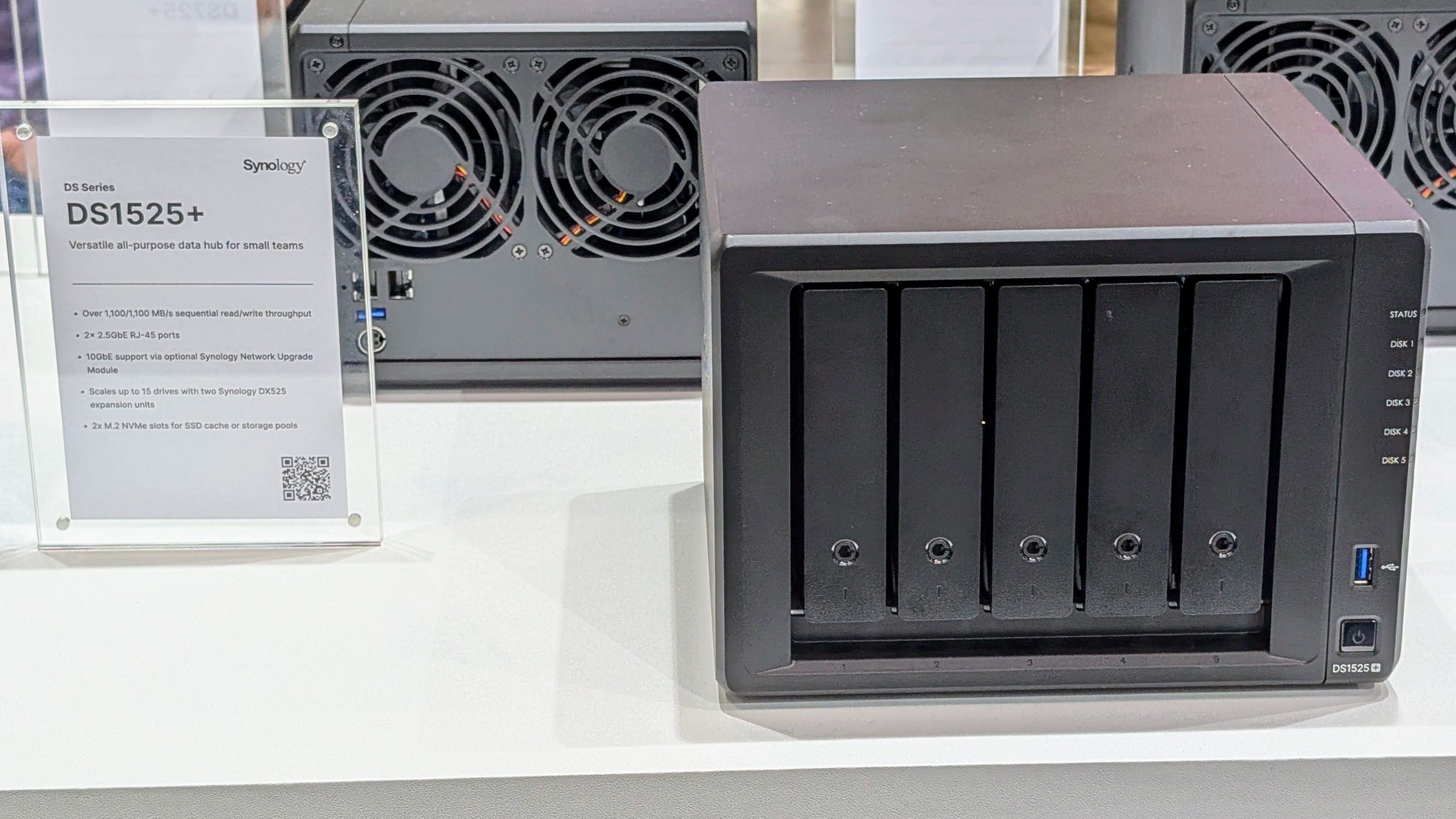
Synology also had a range of already launched NAS on display.
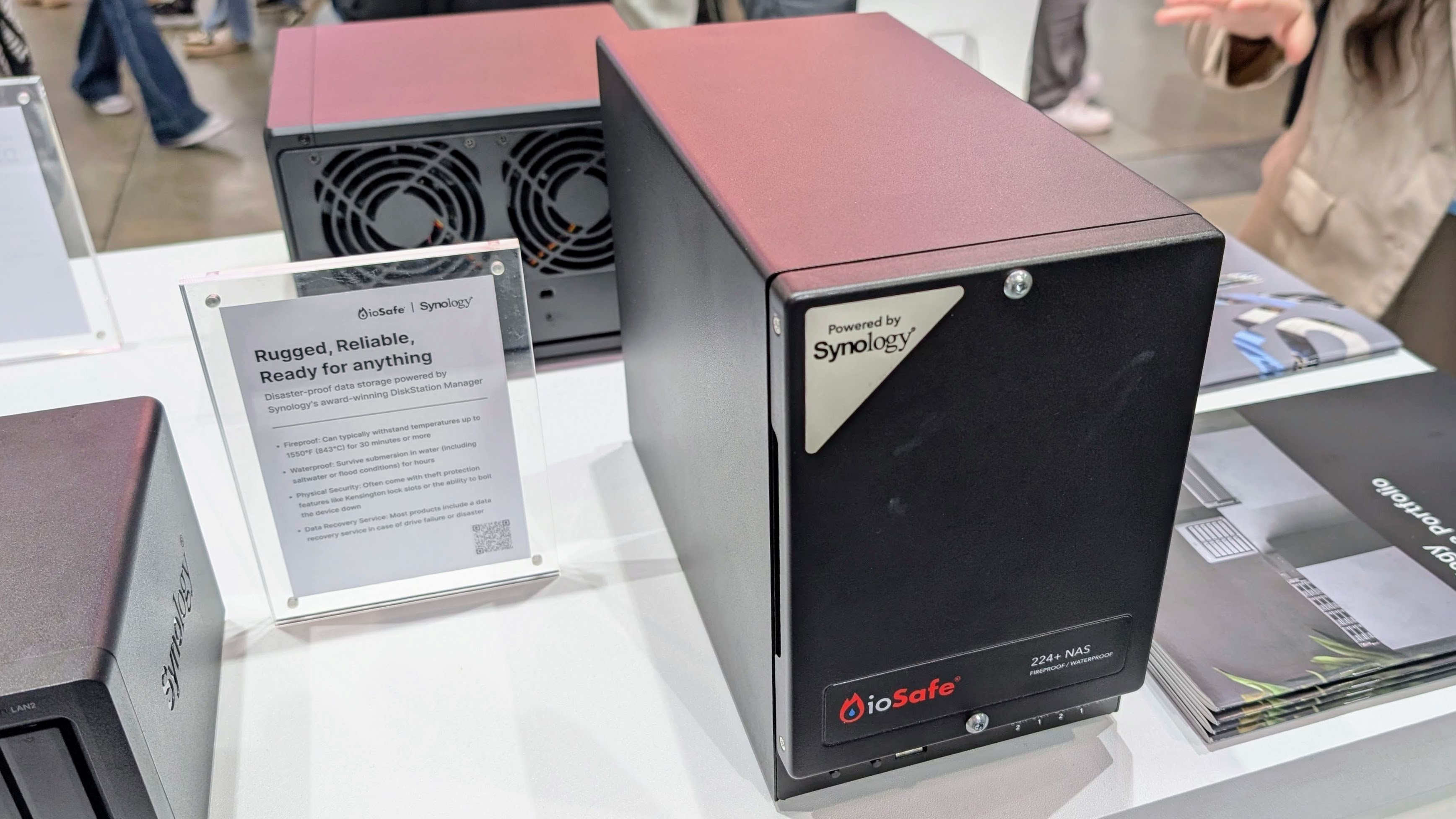
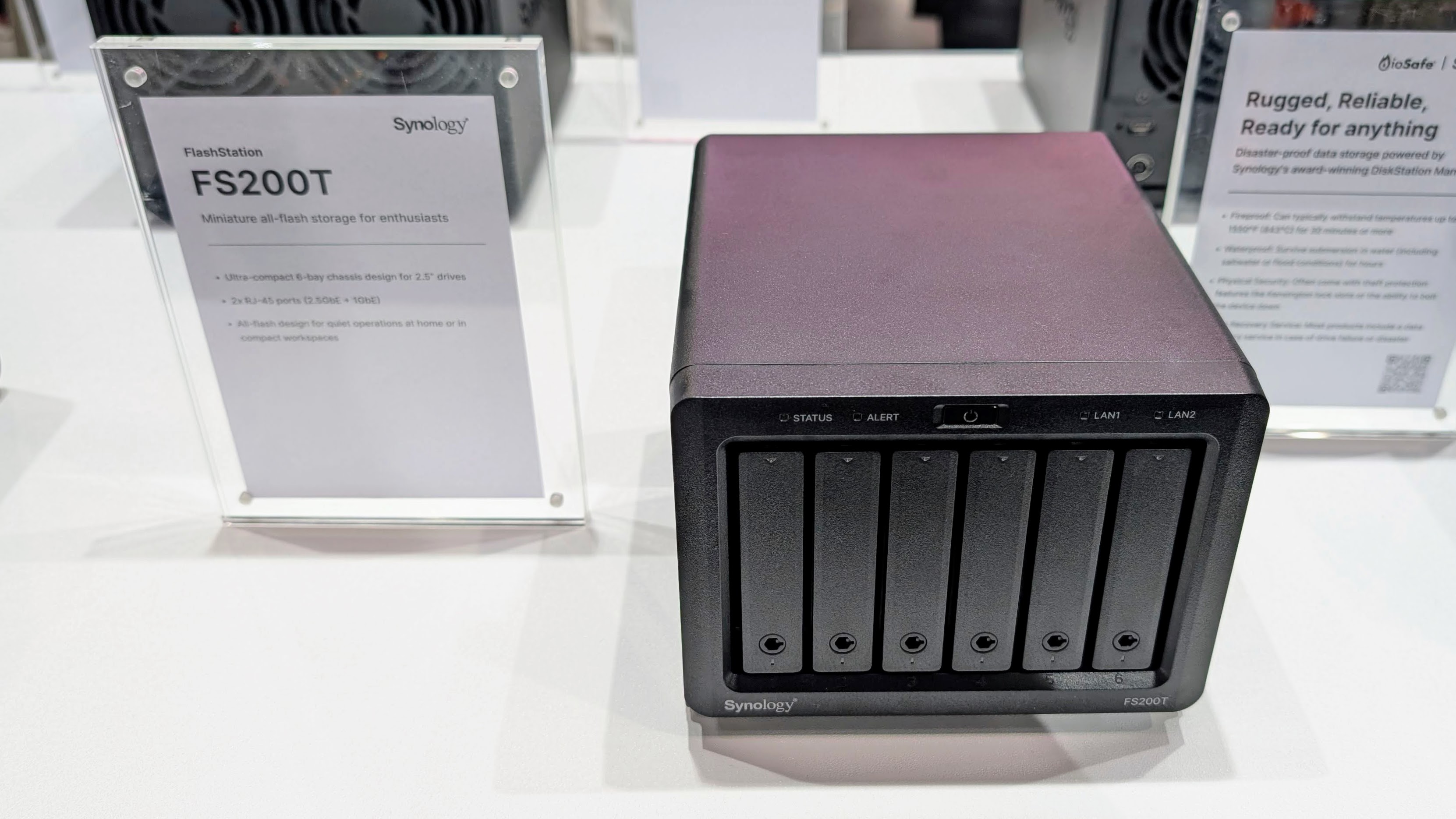
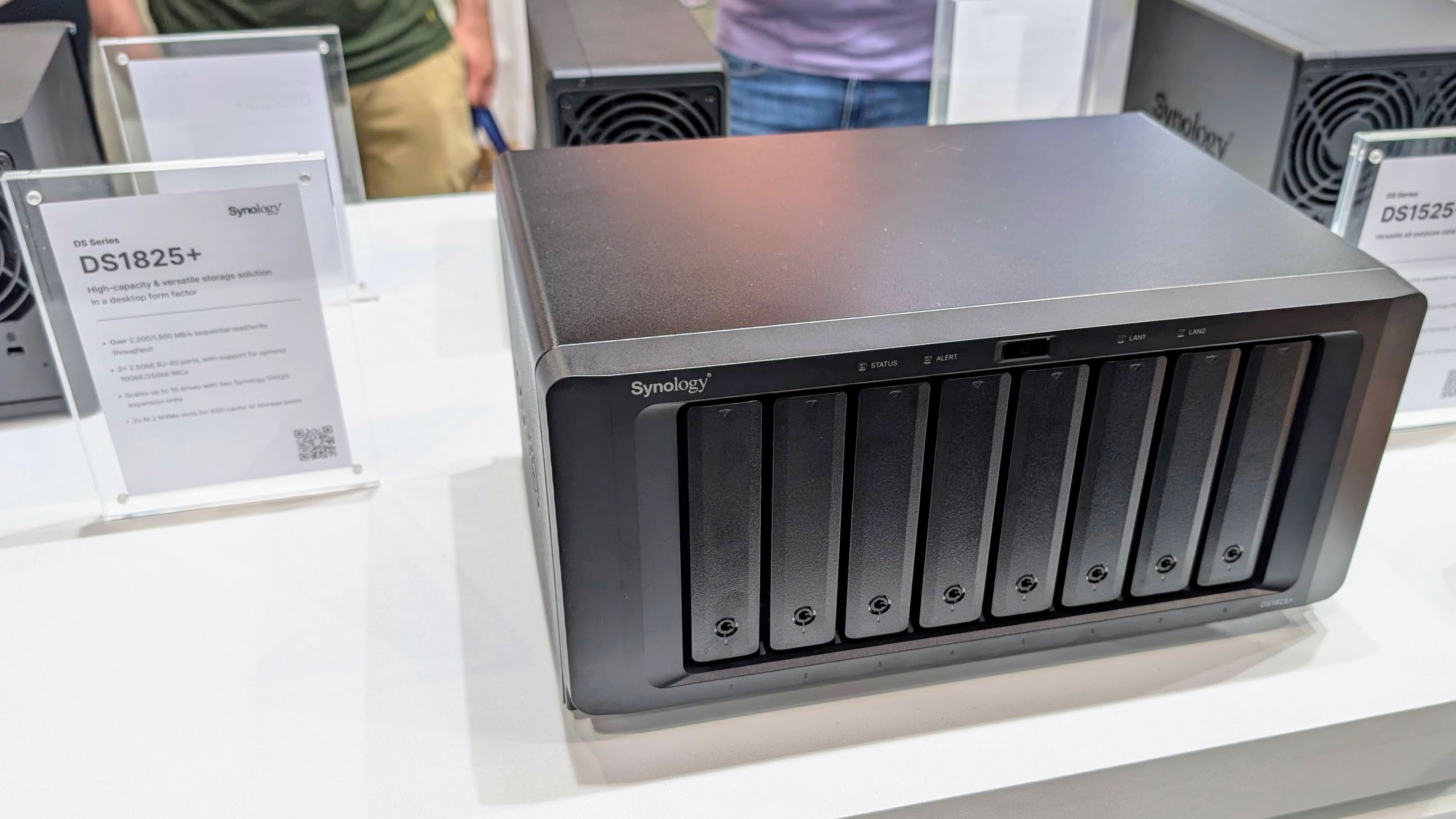
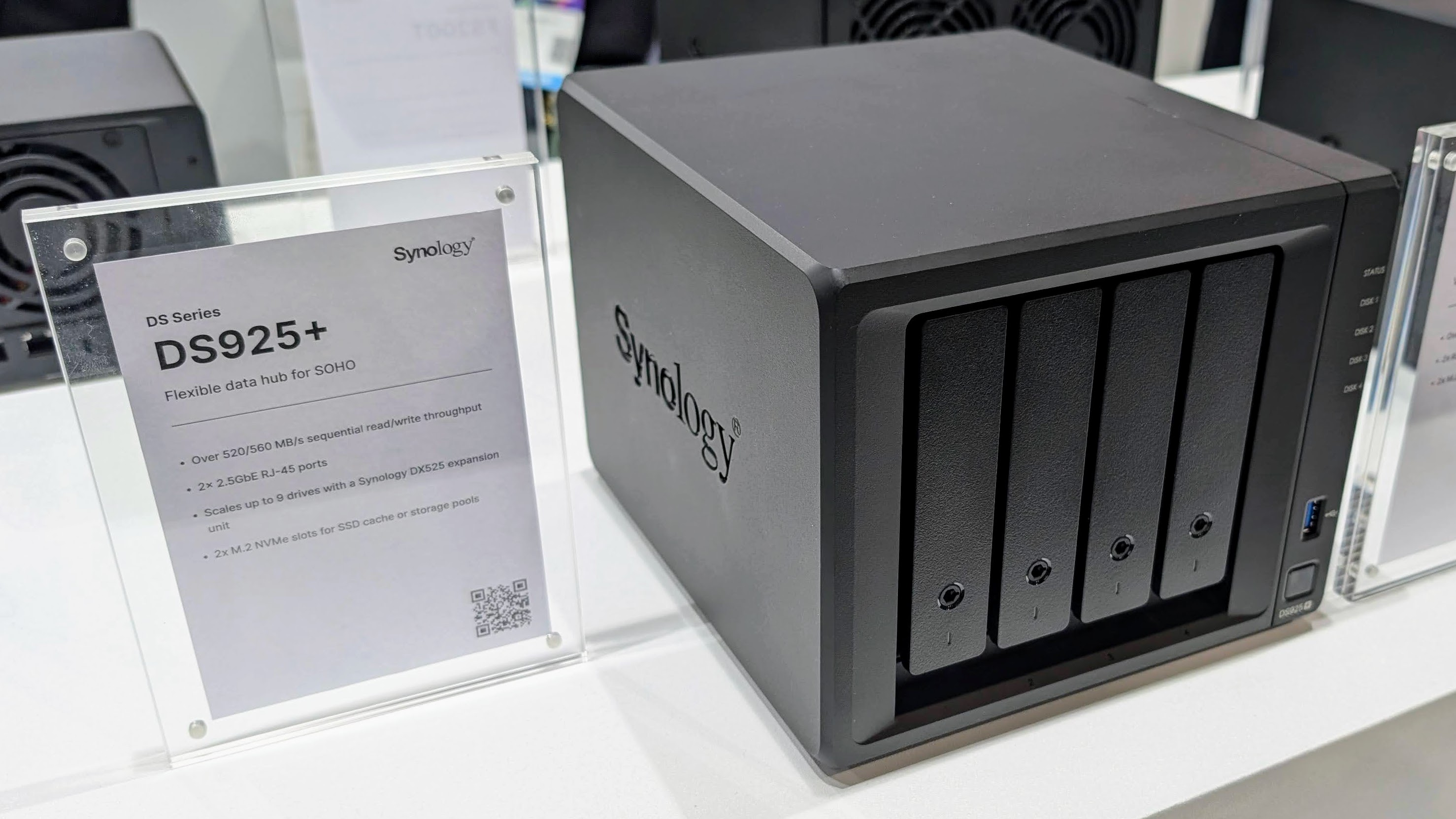
While we reserve judgement until we can get properly hands-on, we were impressed with it at the Synology booth, and it looks to be a good fit for users with demanding tasks, like sharing large video files or VM hosting. While only just launched, you can already buy it in Australia, with a street price around AU$599.
While not officially launched at Computex, Synology also had a range of other Plus Series and other NAS on display (pictured above).
Going beyond consumer devices
Synology isn’t just about the consumer side of things, and was showing off the latest enterprise focused hardware, from full systems to individual drives.
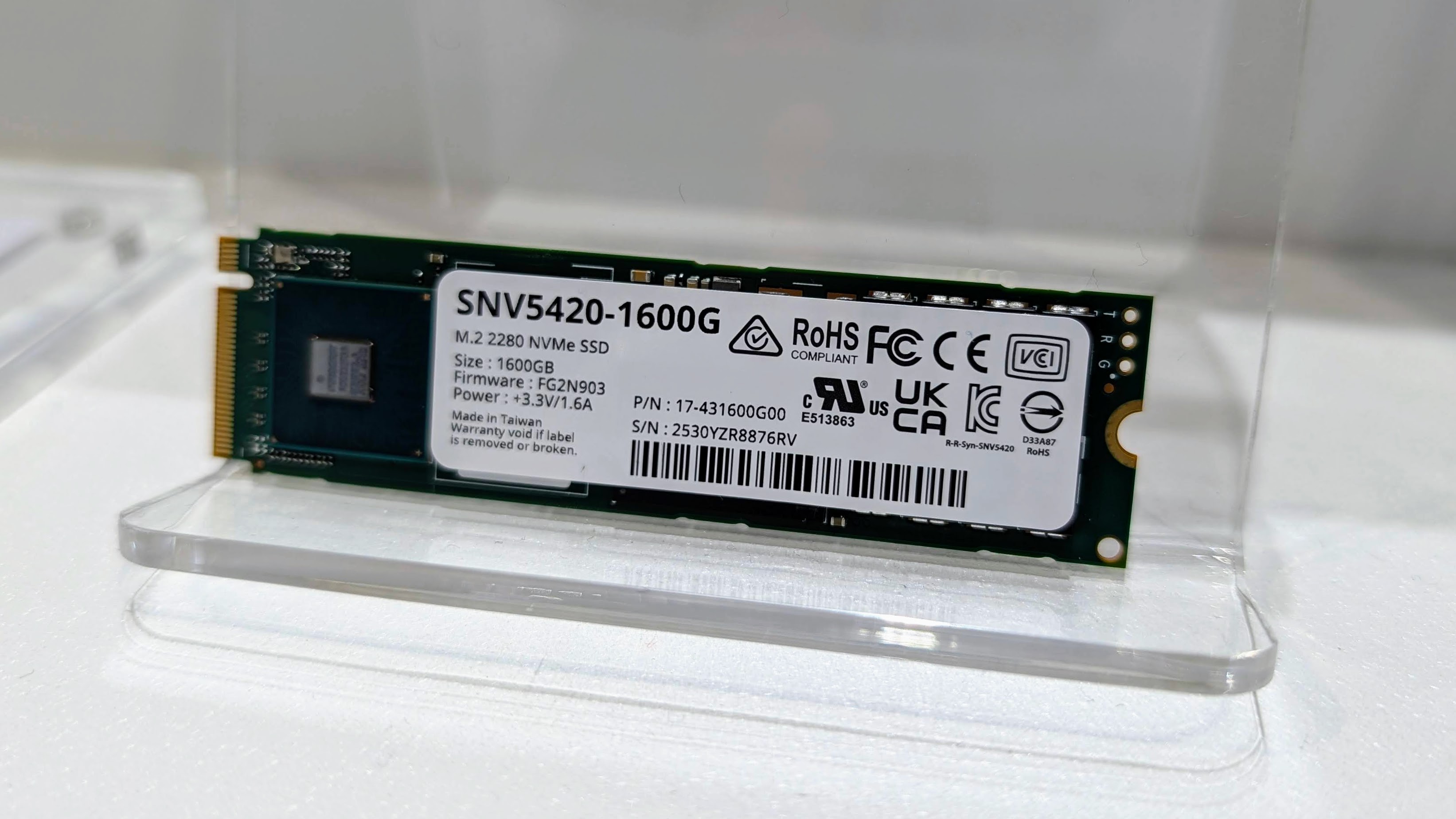
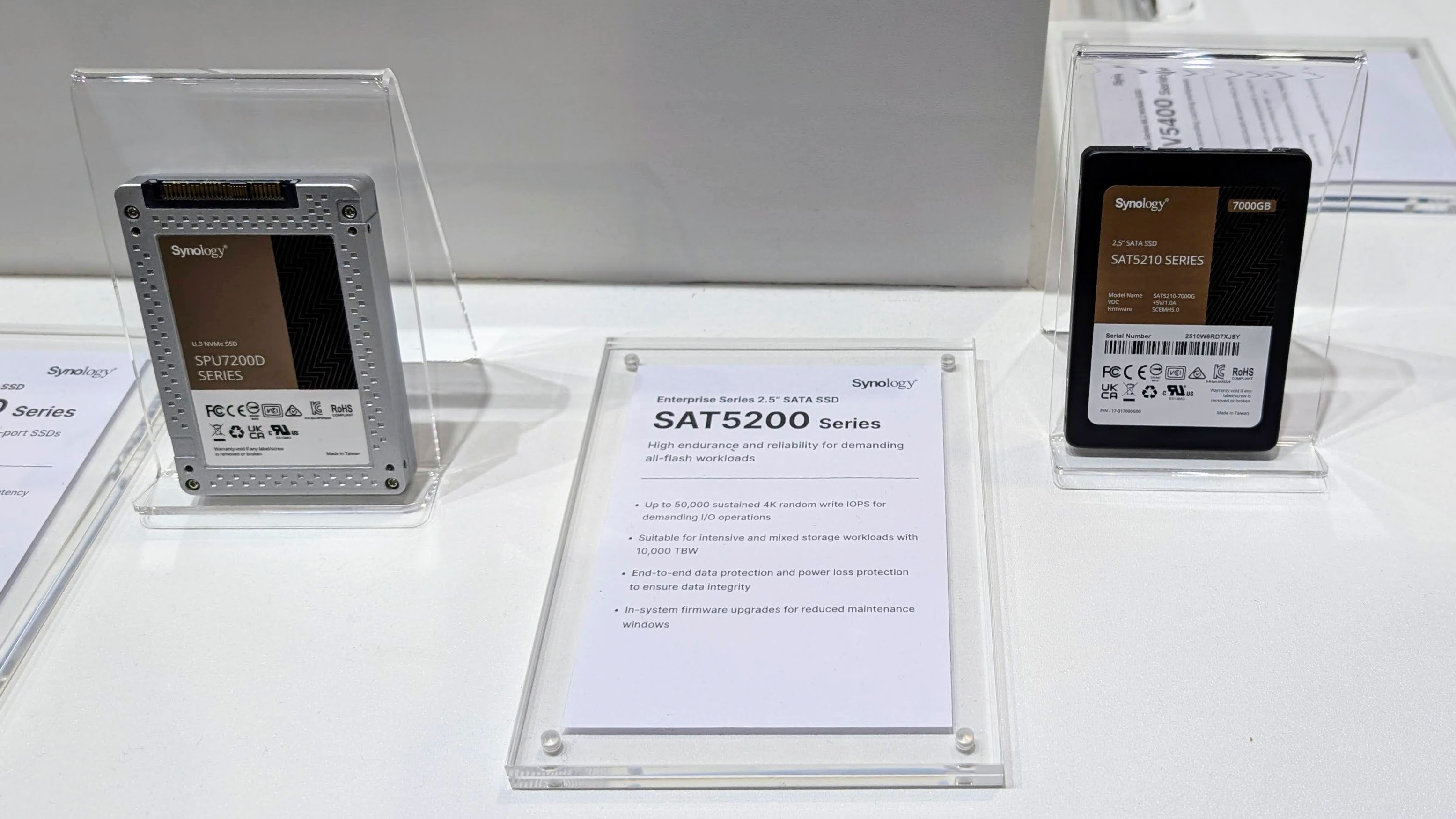
PAS7700: all-flash speed for high-end workloads
At the serious end of the spectrum, Synology introduced the PAS7700 – a heavy-duty all-flash storage array designed for mission-critical enterprise environments. This beast delivers up to 2 million IOPS with sub-millisecond latency, thanks to its full NVMe design, and is designed to suit businesses in sectors like finance and healthcare, where performance is key.
As Synology explained in their announcement, the system supports active-active failover, meaning both controllers can operate simultaneously, allowing for seamless service continuity even during maintenance or unexpected hardware issues. The system also supports immutable snapshots – a growing requirement in modern enterprise IT – to protect data from ransomware and tampering. For added protection, Synology leans on AMD’s Infinity Guard security platform, which brings hardware-level features like Secure Encrypted Virtualization (SEV) into play.
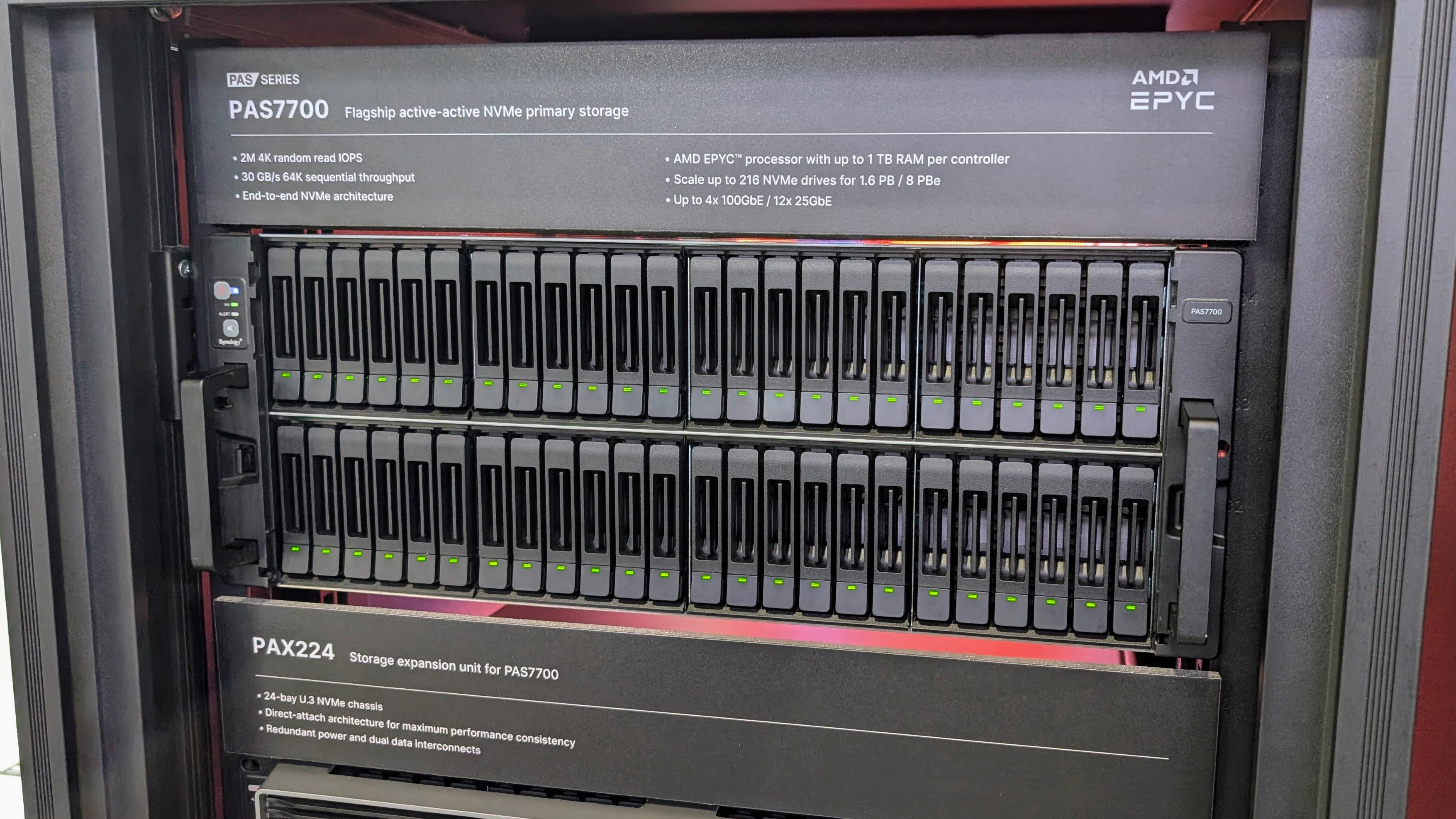
The PAS7700 fits nicely into Synology’s 3-2-1-1 backup strategy: three copies of data, on two different media, with one off-site and one copy being immutable. And while it’s definitely not something most home users will have on their wishlist, it certainly shows Synology is very serious about the enterprise market.
Alongside the PAS7700, Synology also announced the ActiveProtect DP7200 – a backup-focused machine that’s designed specifically to combat modern ransomware threats. It includes built-in immutability, air-gapped network isolation and centralised management features for larger organisations. In other words, it’s not just about storing data – it's about making sure it stays safe, recoverable, and completely under your control.
Surveillance goes smarter with AI and C2
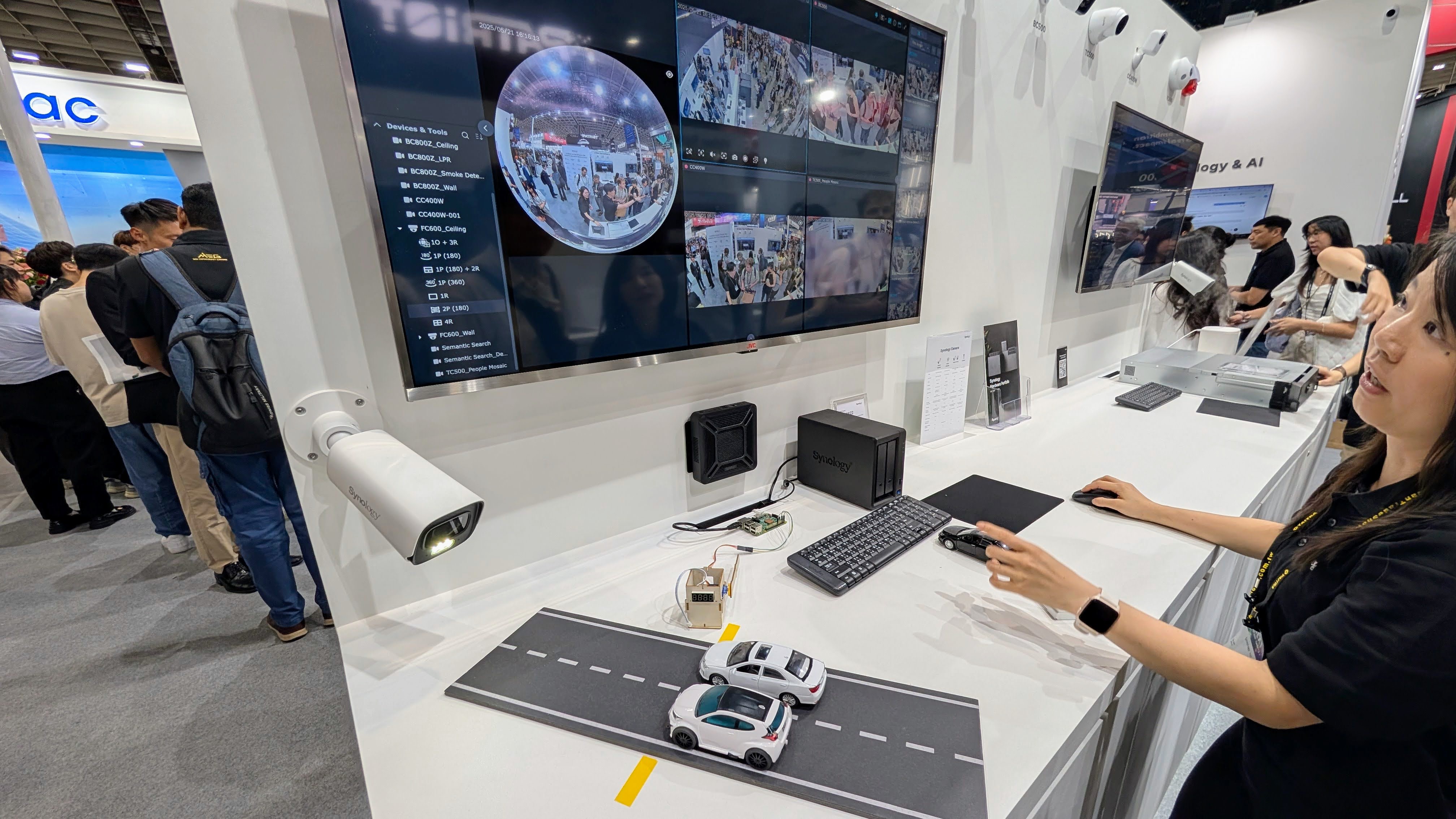
Synology launched the new C2 Surveillance platform at Computex, and was very keen to show off how it can help modernise video monitoring across homes, offices and even big enterprise sites. Instead of relying on traditional on-site NVRs (network video recorders), C2 Surveillance shifts everything to a hybrid cloud setup that’s designed to be quick to deploy and easy to manage, but also very resilient.
It should be especially useful for businesses or institutions with surveillance setups across multiple locations. It gives centralised control, to help make it easier to keep tabs on remote offices or facilities, plus it integrates cleanly with systems like Windows Active Directory for secure, role-based access. One of Synology’s standout points was that even during internet outages, the system keeps recording locally, and once connectivity returns, data syncs automatically, maintaining timeline continuity. In other words, the best of local and cloud systems.
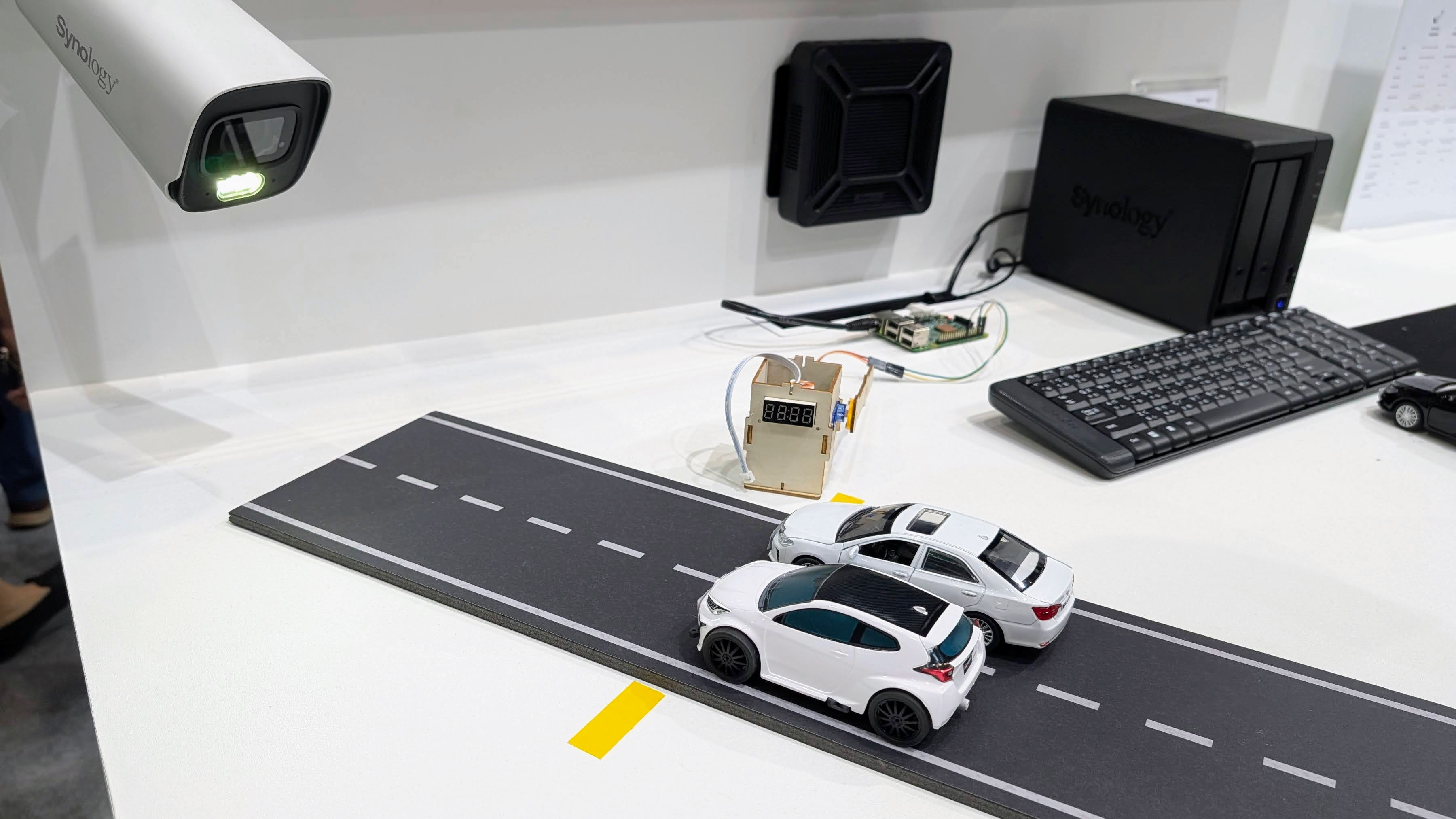
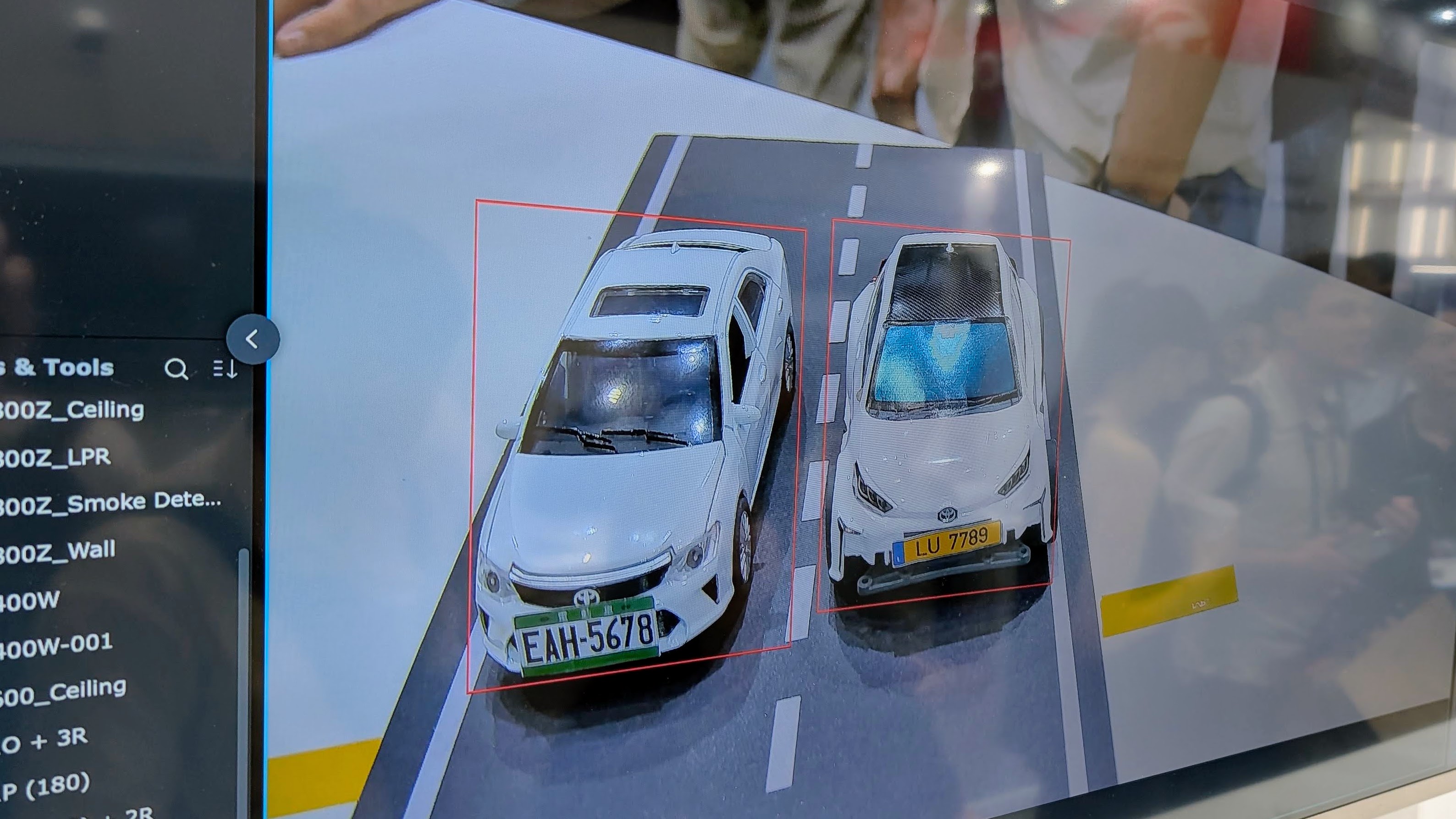
Synology cameras
Synology had a range of cameras on display, including the 5MP BC500 and TC500, the FC600 fisheye cameras, plus the upcoming 8MP BC800Z zoomable camera. All feature onboard AI capabilities like facial recognition, licence plate detection, and wide-angle views for broader coverage. In live demos, they happily handled real-time tracking and identification in less than ideal lighting conditions.
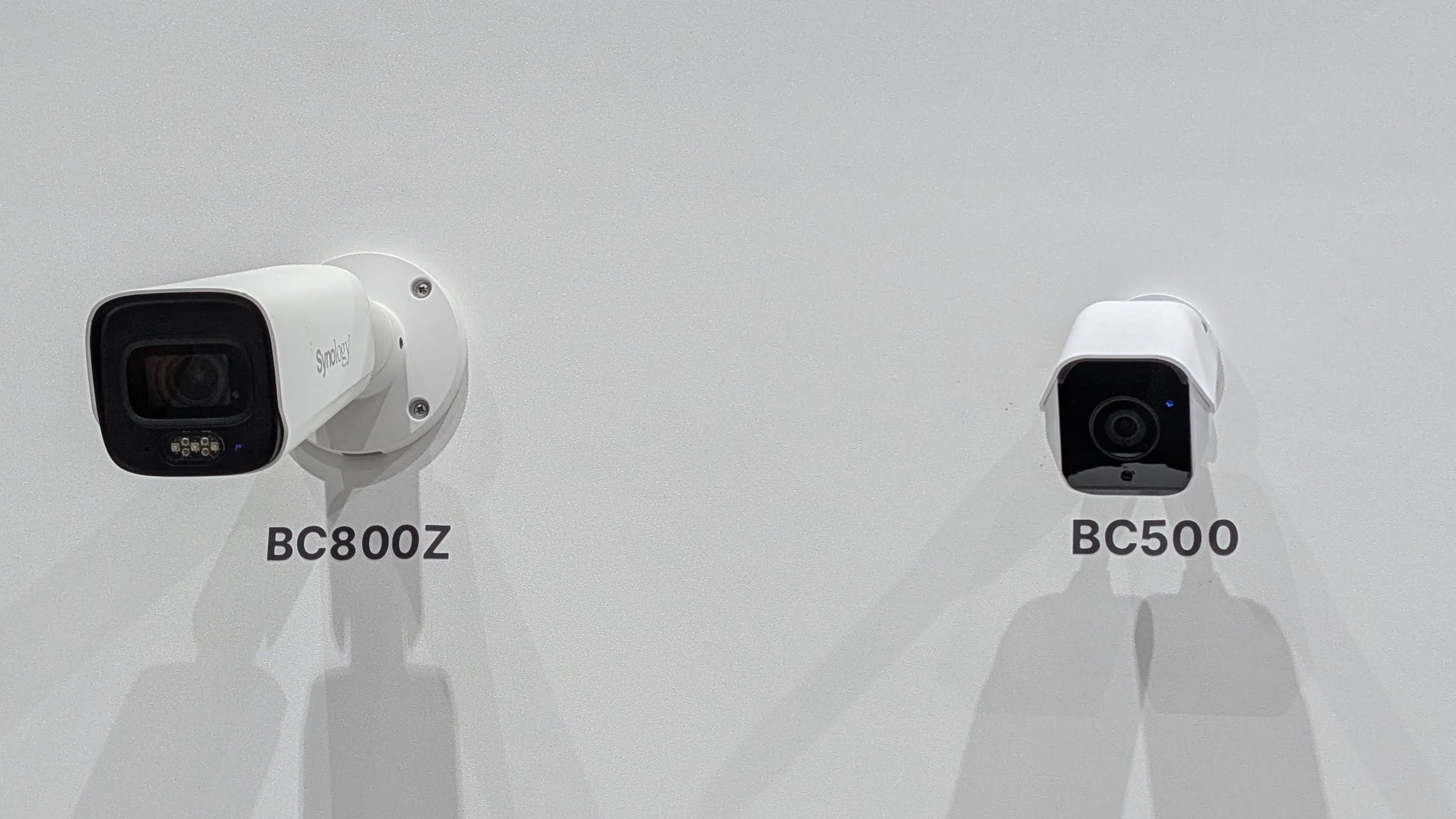
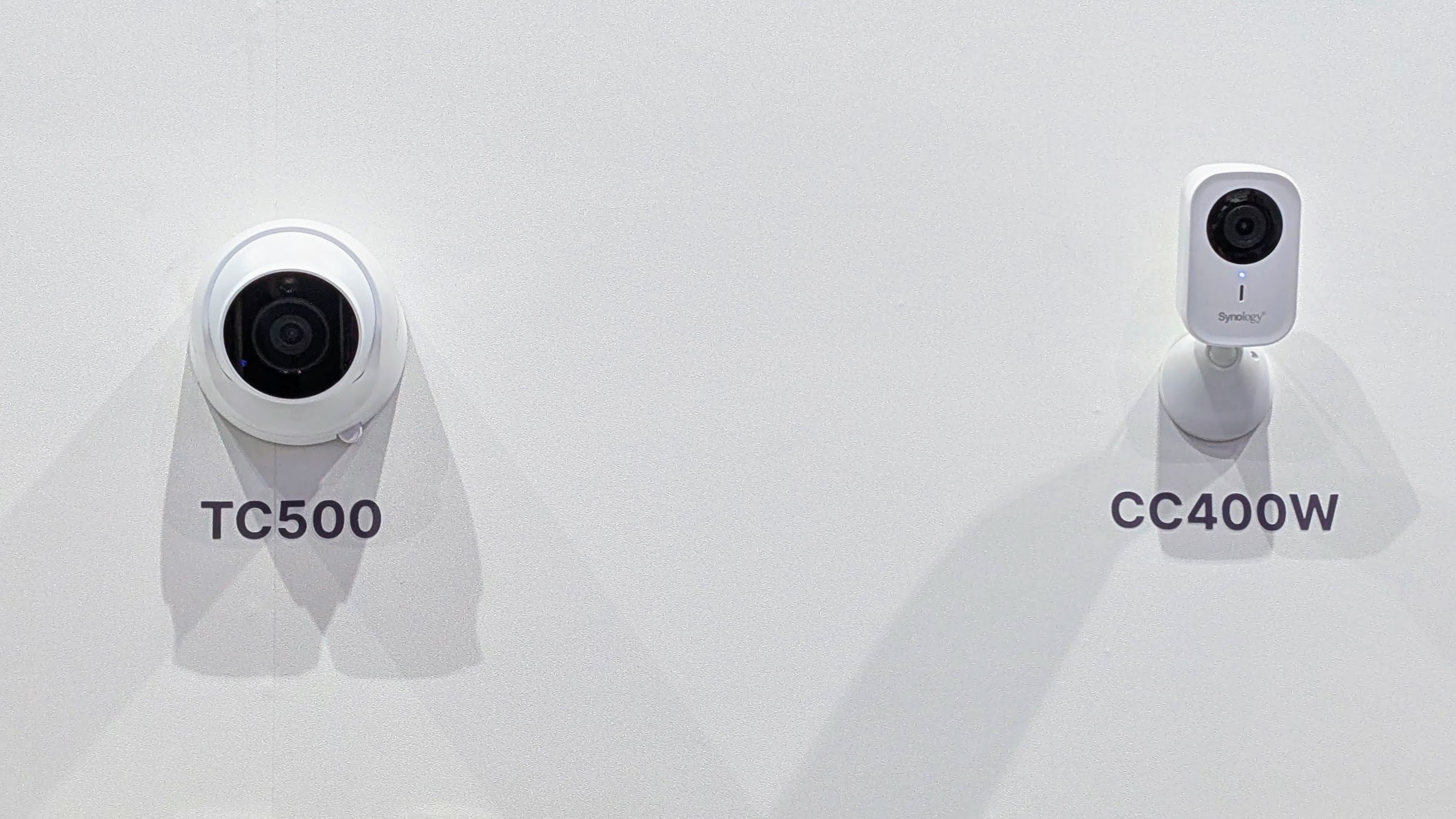
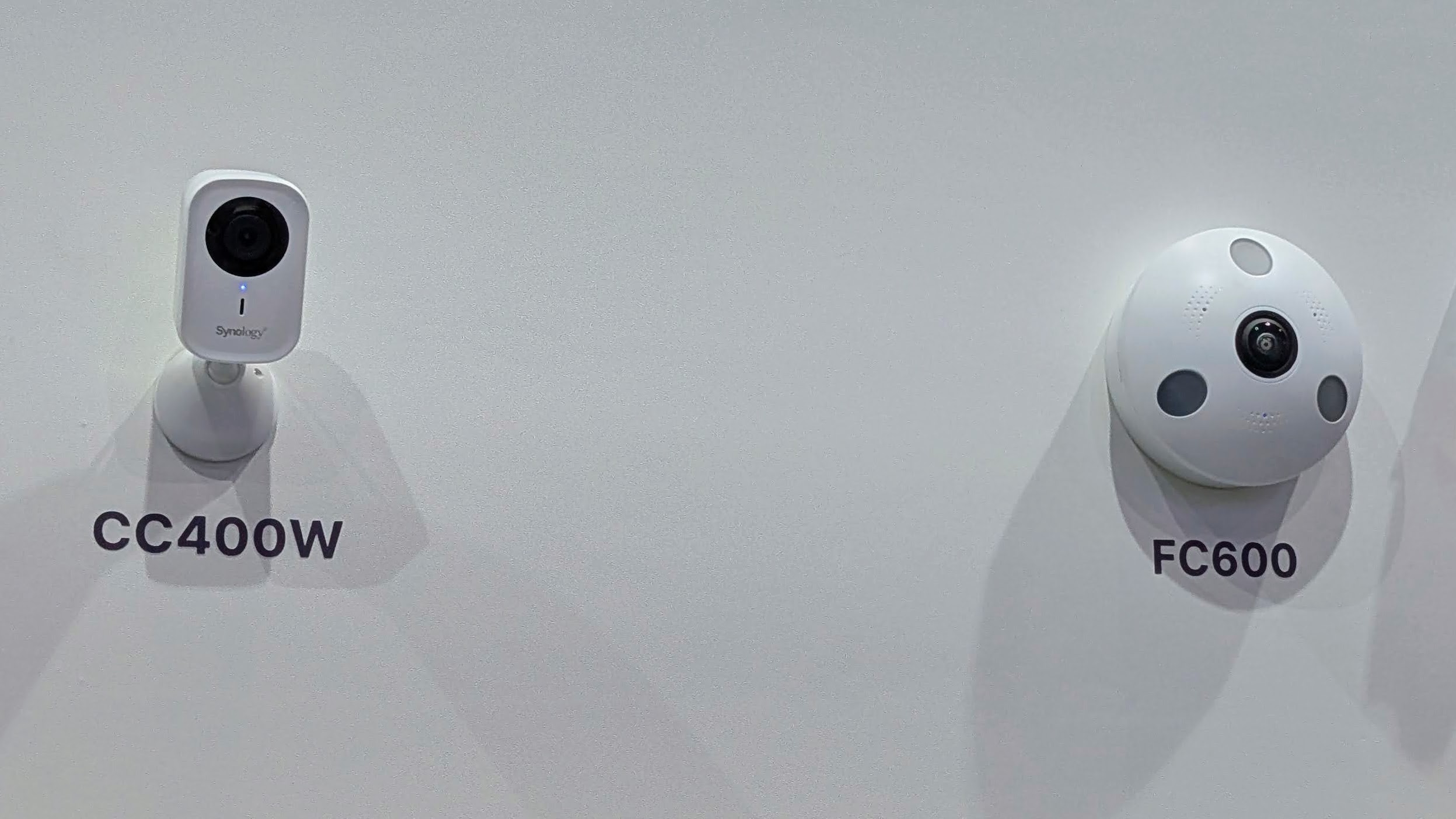
The cameras also integrate seamlessly with Synology’s existing Surveillance Station software for a fully local setup. That means they can be added to an existing Synology NAS and surveillance setup, and add AI-enhanced monitoring systems without relying on the cloud.
Synology at Computex 2025
Want to know more about what Synology launched and demoed at Computex 2025? Take a look at the Synology event page.
TechRadar Australia flew to Computex 2025 courtesy of MSI Components, Corsair and Synology.

Lindsay is an Australian tech journalist who loves nothing more than rigorous product testing and benchmarking. He is especially passionate about portable computing, doing deep dives into the USB-C specification or getting hands on with energy storage, from power banks to off grid systems. In his spare time Lindsay is usually found tinkering with an endless array of projects or exploring the many waterways around Sydney.
You must confirm your public display name before commenting
Please logout and then login again, you will then be prompted to enter your display name.